Are you interested in learning to scuba dive but feel that you’re a bit older than the average?
If you take a quick look at the marketing literature from some scuba resorts, you might think that the activity is only open to those below 20.
So it’s reasonable to ask if there is a maximum age to start scuba diving.
Or, if you’re already a diver, you might be wondering how long you can enjoy the hobby.
We’re going to see that there isn’t a maximum age at which you can learn to scuba dive.
Similarly, there isn’t a fixed age at which you should stop scuba diving, so you don’t need to hang up your fins just yet.
However, a person of any age needs to be medically and physically able, confident, and competent to dive.
While some of these factors can be age-related, all divers need to consider their overall health rather than just physical age specifically.
- Is There An Upper Age Limit for Scuba Diving?
- Is Diving Riskier for Older People?
- Do You Have To Get Re-Certified as an Elderly Scuba Diver?
- Are There Any Other Checks You Need To Pass After a Certain Age?
- 6 Benefits of Being an Older Diver
- 2 Downsides Older Divers May Face
- Is There An Upper Age Limit For When You Can Learn Scuba Diving?
- Can Older Divers Dive as Deep as Younger Divers?
- Can Older Divers Dive As Often as Younger Divers?
- 9 Tips for Elderly Divers
- Conclusion
- You Might Also Like…
Disclosure: this post contains affiliate links (clearly marked with ), which means we may earn a commission if you buy something through them, at no additional cost to you.
Is There An Upper Age Limit for Scuba Diving?
If you are older, you should be pleased to know that there isn’t an upper age limit for scuba diving.
The suitability of someone to dive is a question of their general health, physical ability, and willingness to dive.
Having a fixed age limit at which a person had to stop would be unfair as these factors and their impact vary hugely from person to person and can equally apply to someone much younger.
So a better question to ask is, “what conditions can stop you from scuba diving?”
Scuba Diving Medical
When you learn to scuba dive, you need to complete a medical form that checks for conditions that could cause problems underwater.
This same form can be used to assess recreational divers on an ongoing basis.
The system allows as many individuals to dive as reasonably possible and relies on the participants answering the questions honestly and, if necessary, seeking a medical assessment or approval.
Always be truthful on the medical form, and remember it is your safety that is at risk.
It’s common for people to be unaware of the relevance of some medical conditions relating to scuba diving.
Often the medical document draws attention to something that isn’t a concern for the individual on dry land.
The medical assessment applies to all age groups, but some specific questions focus on older divers.
For example, it asks those over 45 years old about smoking, cholesterol or blood pressure levels, and family history of heart disease or stroke that is not regarded as so relevant to younger people.
However, any restrictions on scuba diving are based upon a person’s health and physical ability, not simply their age.
Indeed, the oldest scuba diver on record was over 98 years old, and the father of scuba diving, Jacques Cousteau, kept going until he was 87.
Scuba resorts and dive shops operate with a self-certification system that allows their certified diver guests to sign themselves off as being medically fit to dive in most areas.
However, this can vary from place to place, with some locations or individual operations requiring a medical form that a doctor has signed.
Age limits for scuba diving on an excursion from a cruise ship seem to be quite common, albeit arbitrary.
If in doubt, check before traveling so that you can arrange for a medical check-up with a doctor experienced in scuba diving if necessary.
General Concerns of Age
If you are in good health, possess good diving skills, and are mentally sharp, you can keep diving as long as you want to.
As we get older, it’s normal to experience some physical limitations or aches and pains.
Still, once you are underwater and enjoying the feeling of weightlessness, these don’t have to stop you from enjoying scuba diving.
We’re going to look at some great ways that older divers can keep enjoying diving later.
But for now, the critical thing to remember is that so long as your overall health and condition are good, then you can overcome most other things if you want to.
If you’re in any doubt, talk to a doctor experienced in scuba diving medicine, and they will be able to put your mind at ease.
Is Diving Riskier for Older People?
All scuba divers should be aware of their health and fitness, particularly how they can change over time.
With older age, some health issues relevant to diving can become more common or worsen.
Although it can take palace at any age, a reduction in overall physical fitness may be expected in older people.
Similarly, older people may be more likely to take medication, have increased blood pressure, heart problems, or diabetes, all of which can affect safety underwater.
Older circulation does typically slow down, and the impact of cold and dehydration can be more significant.
The Divers Alert Network recommends that all scuba divers over the age of 45 take a medical with a scuba doctor once a year to make sure that any potential increase in risk is managed.
All scuba divers should be aware of their health and regard any relevant changes worthy of evaluation by a doctor specializing in scuba diving.
It’s difficult to say specifically that scuba diving is riskier for older people.
However, the importance of being aware of and recognizing potential problems does take on greater importance with age.
Decompression Sickness
It is commonly considered that older age is a factor that might contribute to an increased risk of decompression sickness.
It is thought that an older person’s circulatory or respiratory system may work less efficiently, which could affect nitrogen gas exchange from taking place as expected.
In addition, older people often have a generally higher body fat composition and may have lower fitness levels that are DCS contributing factors.
However, studies have failed to prove this link, and in general, we can regard that the highest increase in risk is mostly fitness-related rather than uniquely down to age.
However, as we can reasonably assume that circulation and respiration efficiency do reduce with age, it would be fitting to emphasize cautious diving practices, the importance of proper hydration, and awareness of contributing factors to older scuba divers.
There’s nothing wrong with being a little more cautious as we get older, and in terms of diving, while the evidence might not be entirely conclusive, it would seem like a sensible idea.
Do You Have To Get Re-Certified as an Elderly Scuba Diver?
Unlike the rules for a driving license in some countries, your scuba diving certification doesn’t carry any restrictions for age.
The emphasis is on the individual to manage and recognize any changes in their abilities and act accordingly.
Are There Any Other Checks You Need To Pass After a Certain Age?
An older diver should act in the same way as anyone else, including assessing their medical health, overall fitness, and suitability to dive.
If they have left it a reasonable period since their last dive, they should remember that skills will fade and take a refresher with an instructor.
It’s always a good idea, especially with age, to start slowly.
6 Benefits of Being an Older Diver
1. Diving Can Increase Overall Fitness and Health
As an older person, scuba diving could help to keep you fitter.
This could be directly from the activity itself as scuba diving is good exercise.
It could be from a person working to improve or maintain their fitness to continue to dive as they get older.
The increase in fitness from regular scuba diving can reduce the risk of heart attack or stroke.
Scuba diving can also help to reduce blood pressure and improve circulation.
It is also said that contact with salt water can have a natural healing effect on the skin.
Scuba diving is good for you, and as an older person, you can enjoy health benefits as well as the pastime itself.
2. Diving Is a Low Impact Exercise
As well as being great fun, scuba diving can offer an excellent way for an older person to get low-impact exercise with reduced risks to joints.
If doing lengths of the swimming pool is a little too boring for you, you might find that scuba diving provides the excitement that you’re looking for.
The feeling of weightlessness offers an excellent opportunity for movement that might not be realistic on dry land.
3. Diving Can Improve Mental Wellness
Scuba diving is recognized as an excellent mental exercise for relaxation and mindful stress relief.
The focus on controlling buoyancy and movement underwater, combined with the peace, can promote an almost meditative relaxation, and the physical exercise encourages the release of happy hormones.
Scuba diving brings a sense of belonging, community, and teamwork that older people might miss in retirement.
Retirement or older age can cause increased isolation and loneliness.
Maintaining a hobby such as scuba diving can help significantly in reducing the associated decline in physical and mental health.
Scuba diving is usually a social activity that often involves travel and meeting new people, all of which can help with a happy and healthy life.
4. Older Divers Can Enjoy Their Dives More
It’s entirely possible that older divers can enjoy their dives more than younger people.
As we get older, we tend to recognize the value in the experience itself and don’t feel the need to compete to go deeper, stay longer, or swim faster.
The knowledge gained with age can allow older divers to look at their dives in a more straightforward and more enjoyable way.
5. Age Can Bring Experience
The wisdom of age often allows more experienced divers to make better and safer decisions than those powered by the over-enthusiasm of youth.
Experienced, older divers are likely to have come across different problems enabling them to make sensible decisions.
They can apply this experience to help themselves recognize and address difficulties that they encounter with older age.
6. Often Great Air Consumption
It is widespread for older divers to have excellent air consumption.
As an older diver, you can often enjoy embarrassing the younger members of your group with how much air you have left at the end of your dive.
2 Downsides Older Divers May Face
1. Discrimination
Unfortunately, it is common to receive discrimination targeted at age, and this can find its way into scuba diving.
The best way to address this is to ask for help when needed and otherwise act as other responsible and competent scuba divers.
It’s crucial to act to cut off any age-related discrimination while also recognizing any age-related obstacles you might have.
For example, if you do have a problem climbing ladders with your equipment on, then recognizing this and addressing it specifically goes a long way to show that you’re aware of any limitations you have.
Age shouldn’t be any problem for dive shops, and so long as you’re acting responsibly, they should have no reason at all for any discrimination.
Ultimately if you are made to feel unreasonably uncomfortable, it’s time to change who you dive with.
2. May Have To Miss Out on Some Dives
If older age has affected your ability to fin as strongly as you used to, then there’s no shame in backing out of a dive that might be dangerous or just not enjoyable.
It is possible that as we get older, we might not be able to do the kinds of high-adrenaline dives that we used to, but that is no reason why we can’t continue to enjoy scuba diving as a whole.
Is There An Upper Age Limit For When You Can Learn Scuba Diving?
So long as you can pass the swimming test and don’t have any medical issues that you can’t overcome, anyone can learn to scuba dive without an upper age limit.
Learning a new skill might take a little longer than it used to be, but you’ll find it rewarding.
You can follow our tips to make your course easier, and you’ll soon be enjoying the worthwhile hobby that is scuba diving.
Can Older Divers Dive as Deep as Younger Divers?
There are restrictions from the certification agencies on how deep younger scuba divers can go, but there aren’t any specific limits for older divers other than that from their certification.
However, many older divers realize with experience that going deep without a specific reason is rather pointless and results in shorter dives.
It’s often the case that older divers are more relaxed about the depth and would instead enjoy a shallow dive when the light is better, and there is often more to see.
Additionally, as we have mentioned, there is nothing wrong with being cautious with age, and reducing the time spent at depth is sensible caution.
Can Older Divers Dive As Often as Younger Divers?
The general rules regarding how many divers a person can do and how long they need to leave between them apply to all divers irrespective of their age.
However, older divers might not want to do so many dives as those that are younger.
It is usual for physical exertion to mean that you might want or need a more extended rest period.
It can also be that older divers don’t feel the need to push themselves as far as they once might.
Again, it’s good practice for older people to consider being additionally cautious, and as a general rule, additional surface time between dives is always sensible.
9 Tips for Elderly Divers
1. Be Cautious
There’s nothing wrong with being sensibly cautious as you get older.
It’s vital to avoid situations that might challenge your physical limits or cause undue stress.
Expand your safety margin by considering:
- Making shorter and shallower dives
- Extending your surface interval between dives
- Reducing the number of dives you make each day
- Dive enriched air nitrox instead of air to decrease your nitrogen exposure
- Avoid dives that might need excessive physical exertion
Shallower dives in calmer waters can still be extremely enjoyable and reward slower, more patient, older divers with exciting sightings.
2. Maintain General Fitness
Irrespective of your age, maintaining a reasonable level of fitness for scuba diving is essential.
As we get older, making time for exercise and managing our weight becomes even more vital.
In scuba diving, you need strength and fitness not just for the activity itself but also for:
- Setting up our equipment
- Surface swimming to and from the boat
- Helping our buddy if needed
While no one expects an older diver to be superman, there are some requirements to be a safe diver.
To stay dive fit, it’s a good idea to carry out a weekly cardio exercise like walking, cycling, or swimming.
Light weight training can still help to maintain muscle strength, and yoga can assist flexibility.
Maintaining a healthy weight helps to limit the risks from decompression sickness.
It can also reduce the chances of encountering heart disease, high blood pressure, and diabetes, which could all restrict the number of years you can dive.
3. Avoid Dehydration
Older people often don’t drink as much, and it’s important to remember that dehydration is a factor that can increase the risk of decompression sickness.
Ensure that you’re staying hydrated by continuously drinking suitable liquids before, during, and after your diving day.
4. Consider the Cold
It’s pretty standard for older people to feel the cold more, so you might need to plan for wearing a thicker wetsuit than you used to.
A hood can also significantly help to reduce heat loss.
Remember that getting too cold underwater can cause hypothermia and increase a person’s chances of suffering from decompression sickness.
Remember to take a good towel so you can get dry quickly, along with suitable warm clothes to change into.
5. Help Your Eyesight
Eyesight gets worse with age for most people.
Thankfully it’s possible to dive with contact lenses or a mask that has a prescription lens.
You might also want to consider getting a dive computer with a large and bright screen that’s easy to read, and a pressure gauge with more prominent markings.
6. Equipment Considerations
In addition to getting equipment that’s easier for your eyes, you might want to take a look at equipment to help your body.
Fins
Smaller fins will be easier to put on and don’t need as much strength to swim with.
The downside is that they might not be as powerful in strong currents.
Look for fins with long or flexible straps, as these are much simpler to get on and off.
Wetsuits
Different styles of wetsuit vary hugely in how easy they are to put on and take off when you have reduced flexibility.
Look for suits that have longer than standard zippers and smooth coatings on the seals.
BCD
Travel style BCDs are significantly lighter to carry and are ideal if you’re only diving in warm water locations where you don’t need a huge lift capacity.
7. Don’t Strain
There’s no need to over-stretch yourself lifting tanks, bending for weights, or climbing ladders.
Similarly, if you can’t walk comfortably with your equipment, then it’s OK to get it carried to the water, where you can put it on comfortably.
At the end of the dive, you can take equipment off in the water rather than straining to climb out.
If underwater you’re getting exhausted from heavy kicking, just let your buddy or the Divemaster know so you can take a rest.
If you need help, it’s much better to seek assistance rather than strain or injure yourself.
8. Pay Attention to Health and Fitness Changes
Remember that as we get older, things change, and inevitably abilities that we used to have might not be so strong.
The Divers Alert Network recommends personally assessing your capabilities before every dive to make sure that you’re ready.
As well as seeking a doctor’s approval for any medication or significant changes, be aware that smaller, slow changes can have an effect too.
9. Choose Who You Dive With
Some dive shops and indeed buddies are more understanding to an older divers needs than others.
Even if you’ve dived with a shop or buddy for many years, don’t be afraid to change if they do not accommodate your needs as an older diver.
Conclusion
There isn’t an age that a person must stop scuba diving, and similarly, there isn’t an age at which it’s no longer possible to learn.
So long as adequate general health and fitness are maintained, and the person is willing and able to do so, you can enjoy scuba diving for many years.
With a bit of caution and recognizing any personal limitations, it’s entirely possible to enjoy safe and fun scuba diving for many older years.
You Might Also Like…
-

How Do Scuba Divers Drink Water? 5 Possible Ways (+7 Tips)
-

How Long Can Scuba Divers Stay Underwater? (+9 Limiting Factors)
-
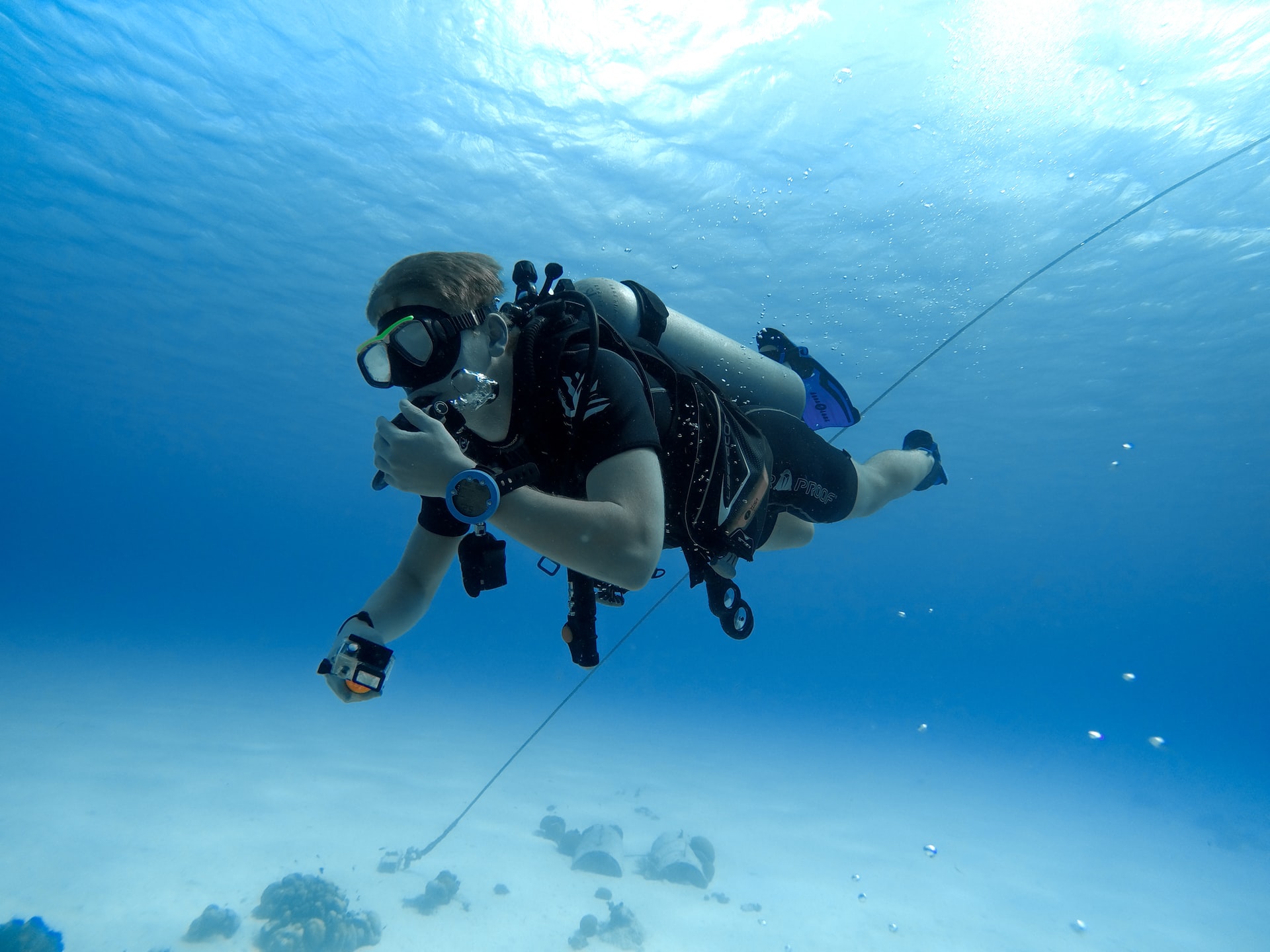
Are Scuba Divers Athletes? All the Facts (+New Competitive Forms)
-
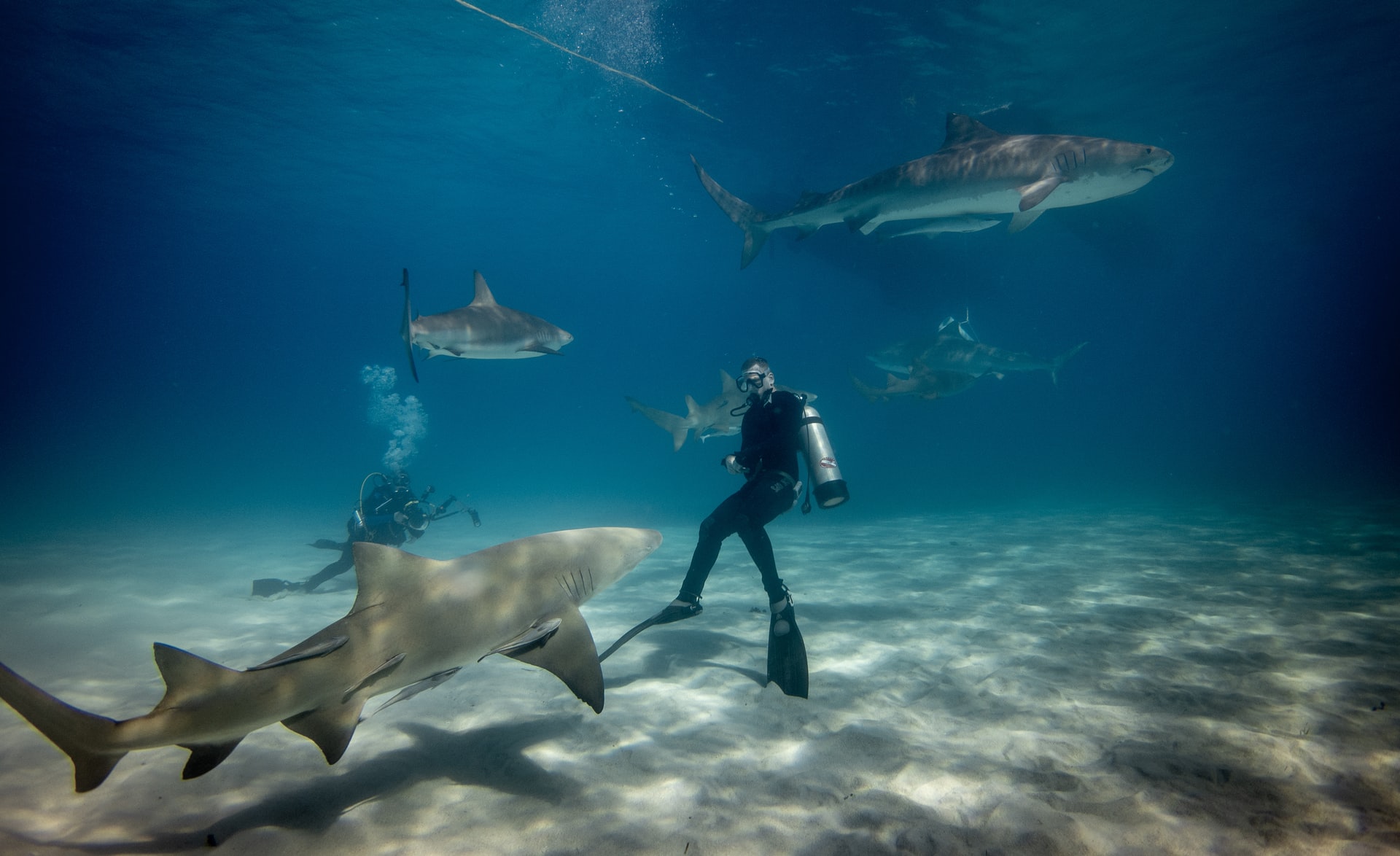
Are Sharks Scared of Scuba Divers? (What Every Diver Must Know)
-
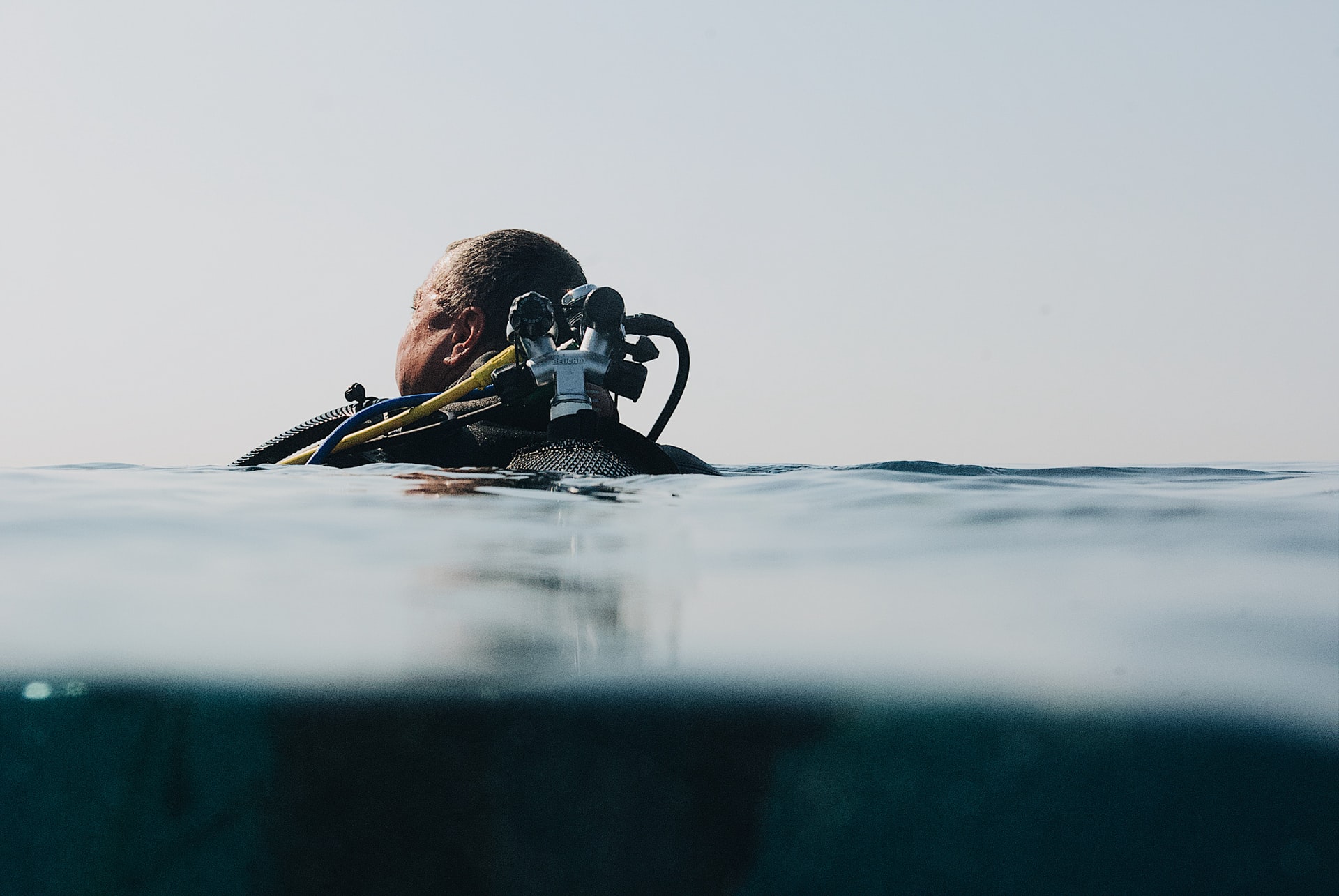
Who Should Not Scuba Dive? 17 Reasons (Every Diver Should Know)
-
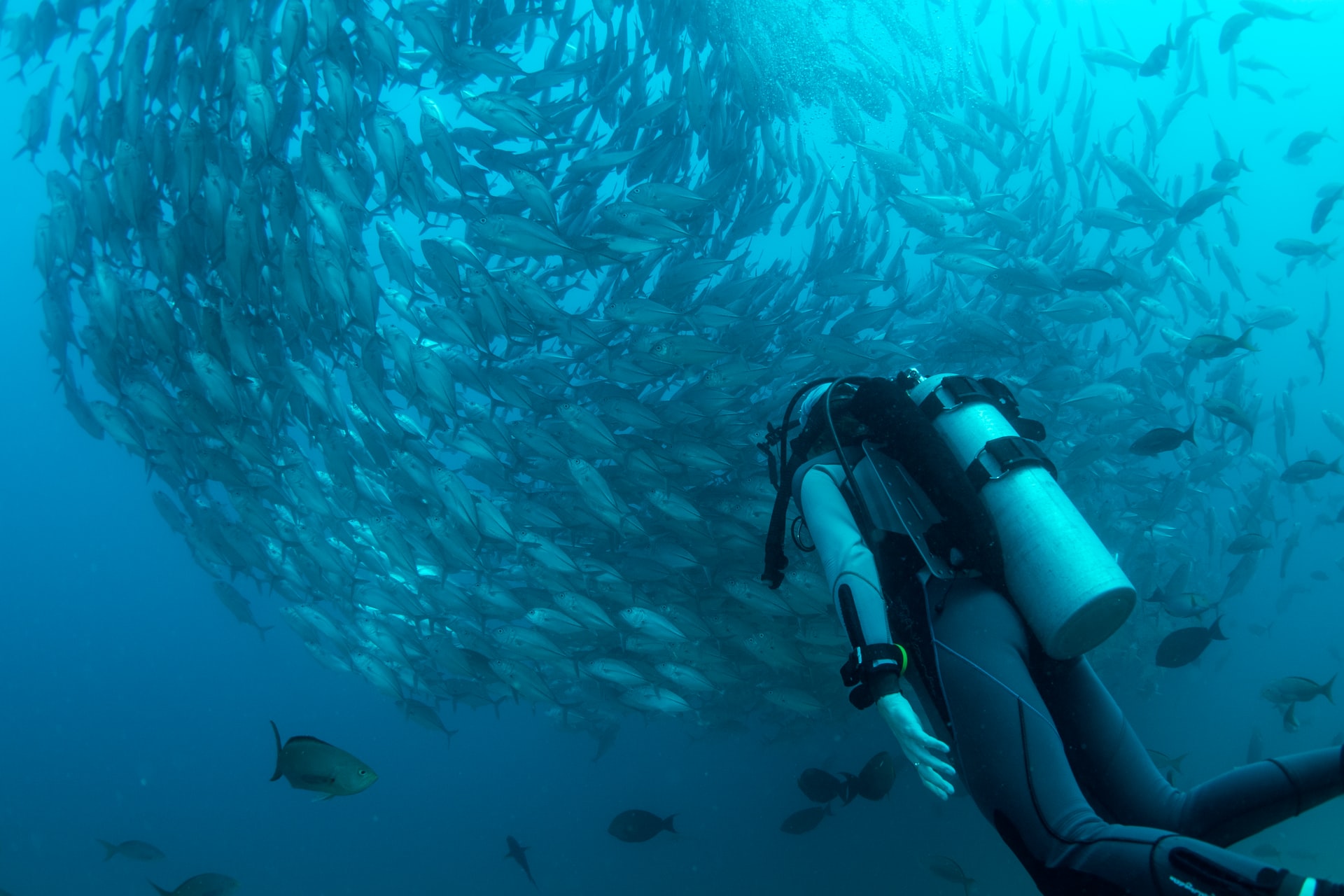
Should I Be Scared of Scuba Diving? 8 Common Fears (Debunked)
-
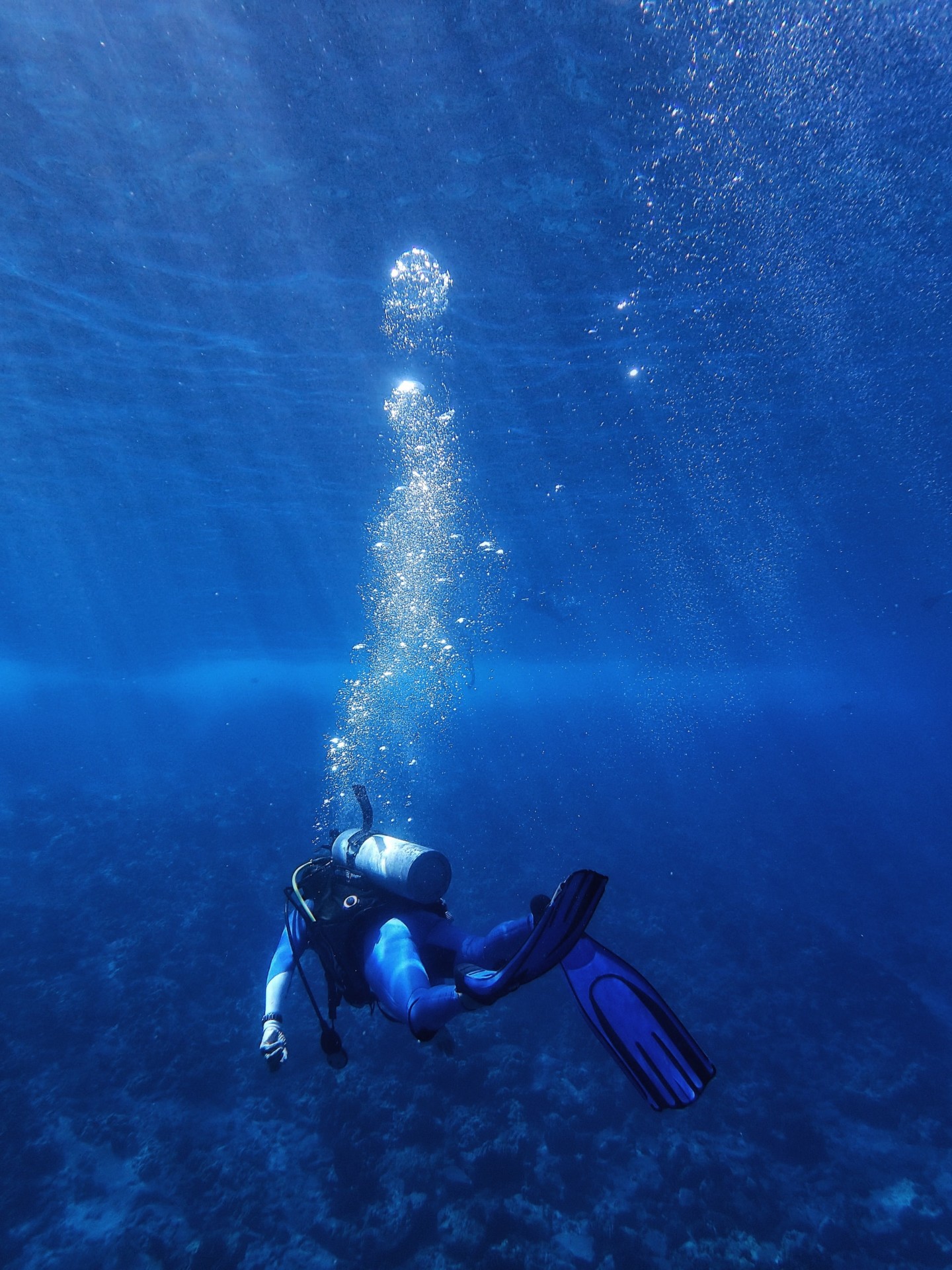
Why Do Scuba Divers Use More Air at Depth? (+4 Practical Tips)
-
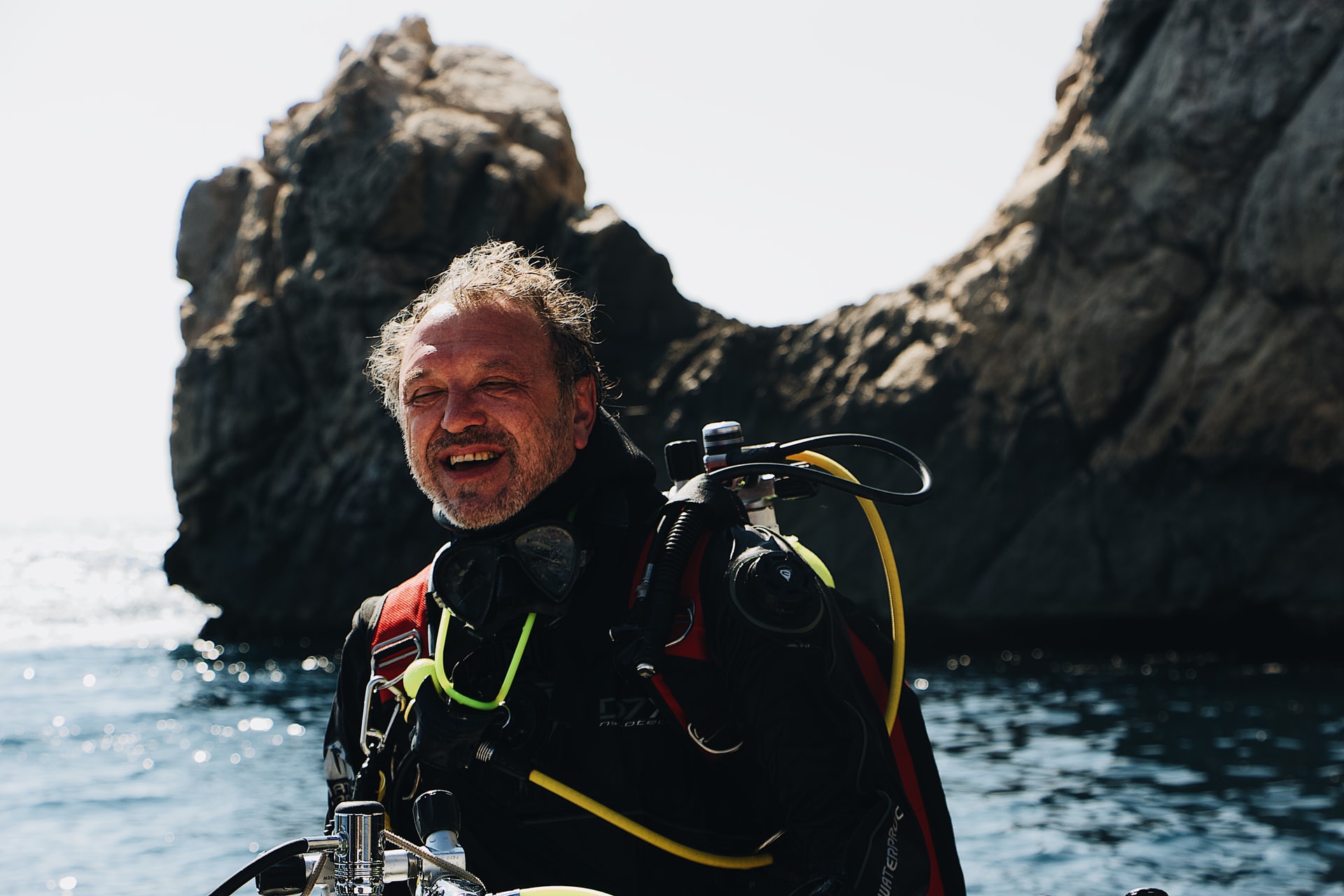
At What Age Should You Stop Scuba Diving? (+9 Tips for Older Divers)
-
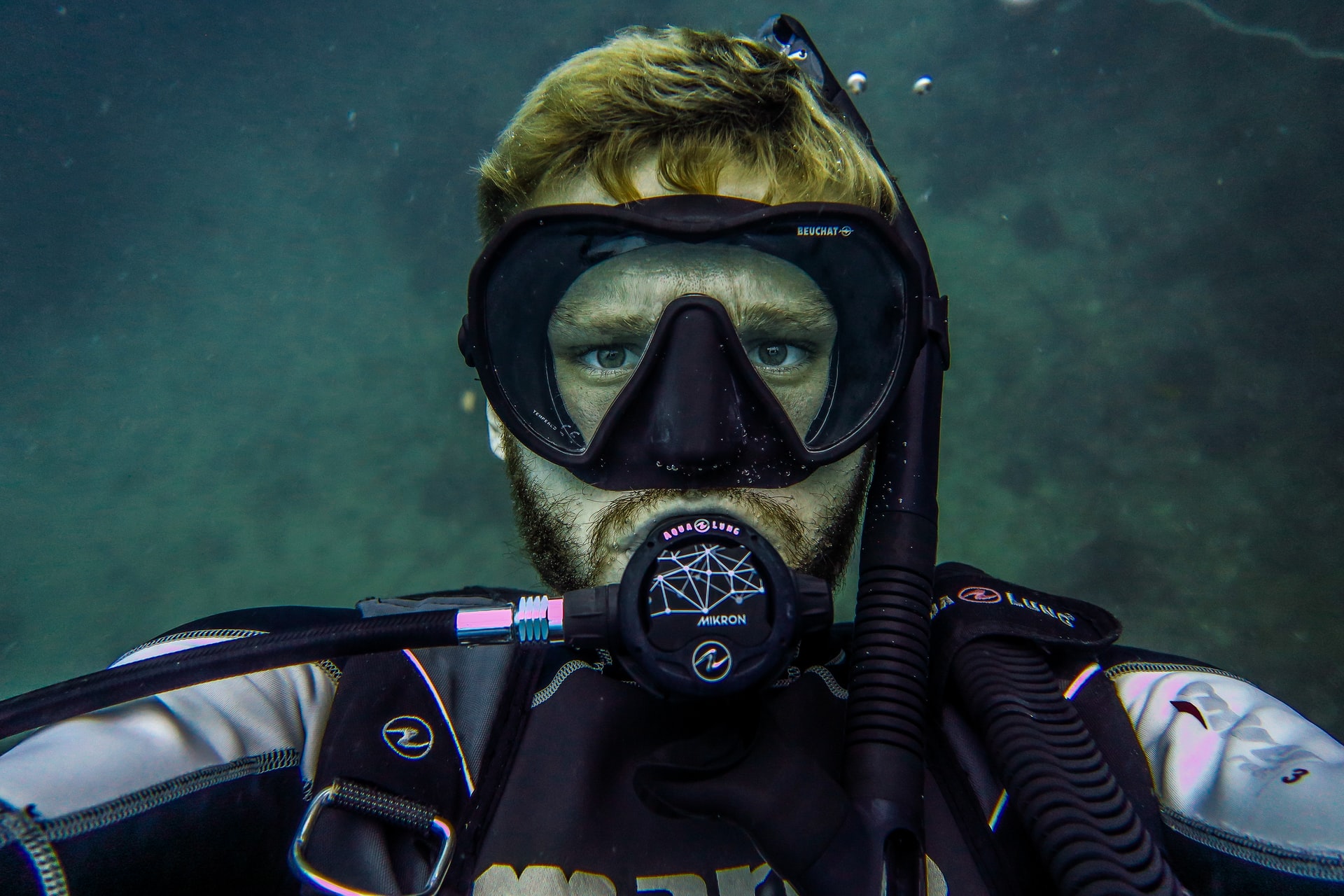
Should I Shave Before Scuba Diving? Crucial Facts (+9 Helpful Tips)
-
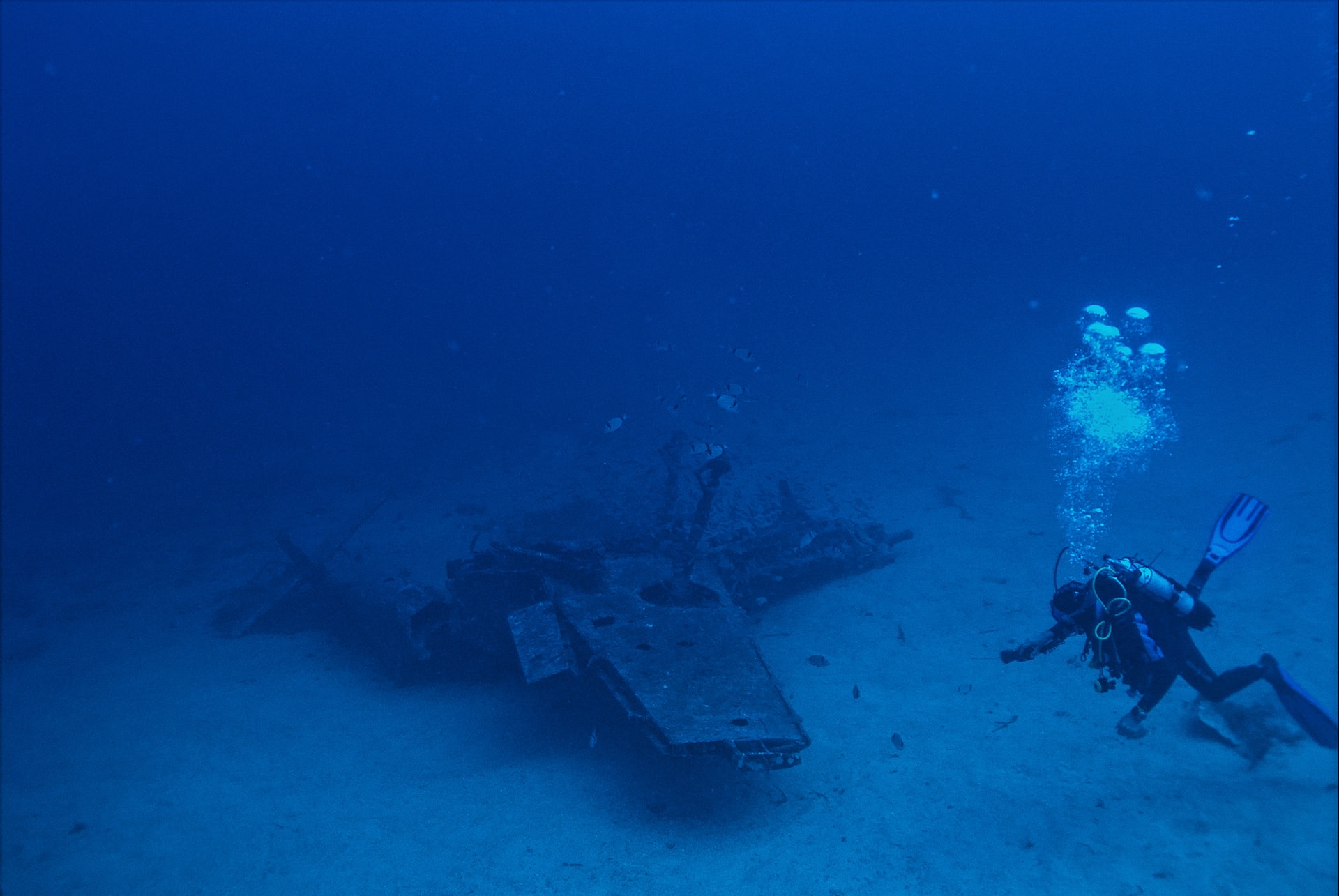
Why Do Scuba Divers Use Helium? (+Its Pros & Cons)
-
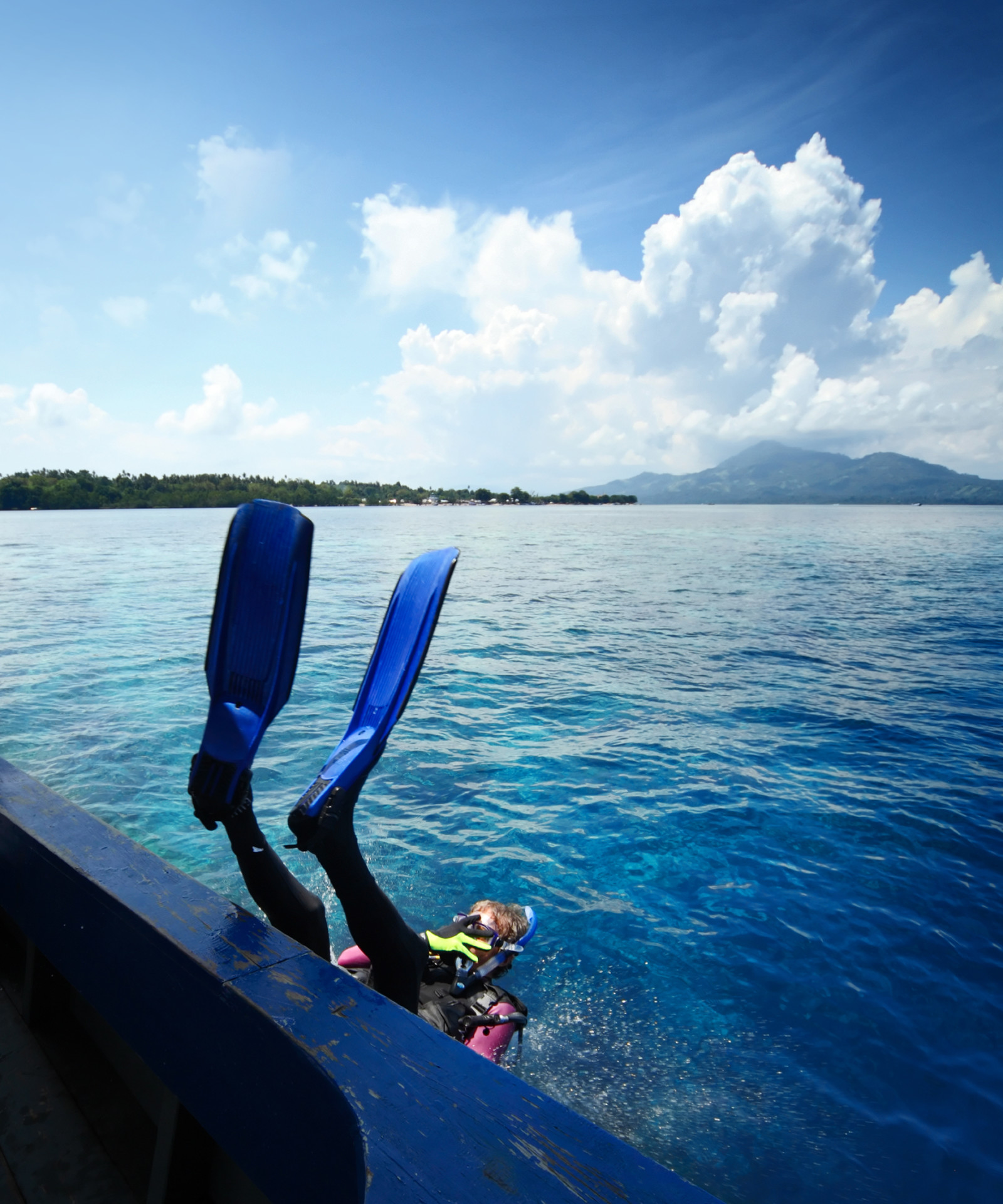
Why Do Scuba Divers Go in Backwards? (+3 Alternative Entries)
-
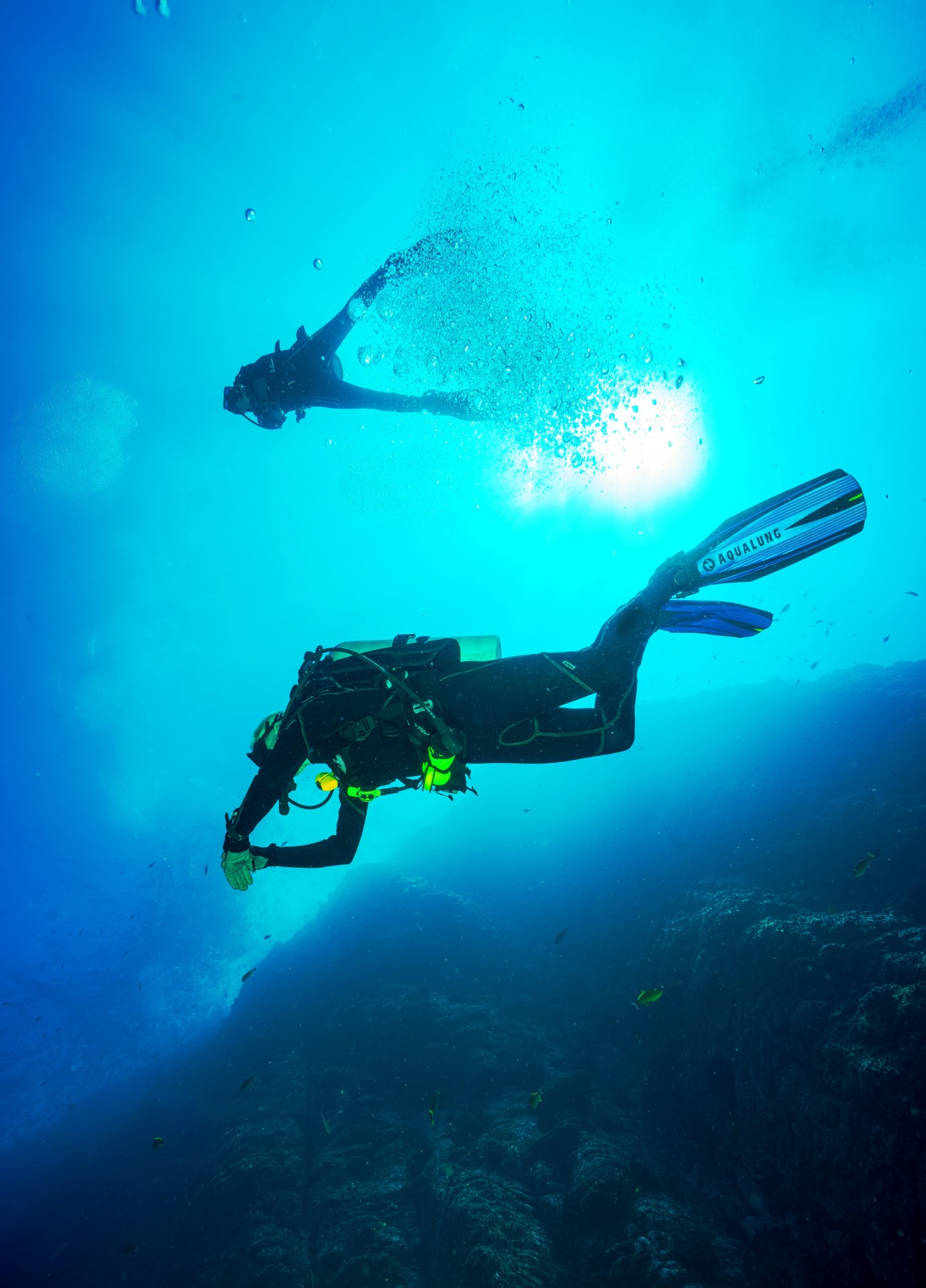
How Do Scuba Divers Sink and Float? (+Tips to Get It Right)








